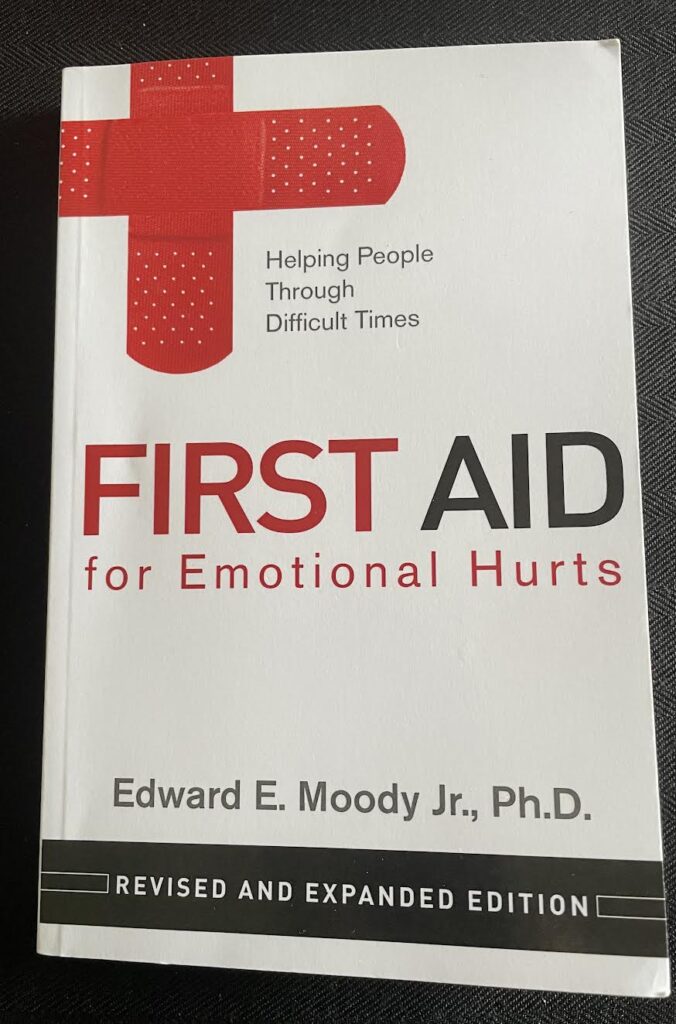While we provide a lot of resources to help you serve the children or teens to whom you minister, we primarily provide resources on parenting topics for you to share with their parents. What should you do if one of these adults approaches and shares a mental health, marital or other serious problem with you? How can you help if you suspect one of your parents is struggling with depression or anxiety?

It has become way too common for Christians to shrug and suggest people go see a counselor for help. What you may not know is that waiting times to be seen are approaching several months and licensed mental health professionals aren’t all equally effective and some may even give advice that is contrary to what God would want people to do.
Even mental health professionals are recognizing the critical need for lay people to give what could be considered emotional first aid. While you may not have the qualifications to talk a suicidal person off of a ledge, you can safely do many things to de escalate the situation until more qualified help arrives (just like you would do CPR before the ambulance arrives). You can also assist people in less critical emotional and spiritual distress.
The question then becomes, what can lay people safely do and what exactly are those things in the situations you may encounter? Thankfully a professor of a counseling program at a Christian university suggested a resource which is frankly the best I have seen to date. First Aid for Emotional Hurts by Edward Moody has everything a lay person would ever want. The complete set contains a “basic” book that covers what the average person would probably need to know when helping others and additional situation specific books that are smaller, but contain more detail.
You can purchase the primary book separately or as part of the complete kit. The initial book is affordable and can be found on sites like Amazon and Barnes and Noble. I could only find the full kit on the publisher’s website (Randall House). Some of the smaller books can be found separately on the book dealer websites as well.
These books are thorough – containing scriptures and relatable people in the Bible with similar struggles, as well as all of the crucial “secular” information like where to look for more help, specific ways a lay person can provide help, symptoms, medications or whatever else one might want to know to feel confident in attempting to help someone who may not need or can’t find professional help.
Let’s stop being the priest and the Levite in the story of the Good Samaritan or tell hurting people the emotional equivalent of “be ye warmed and fed”. Let’s educate and prepare ourselves to provide the emotional first aid our critically hurting world needs.




